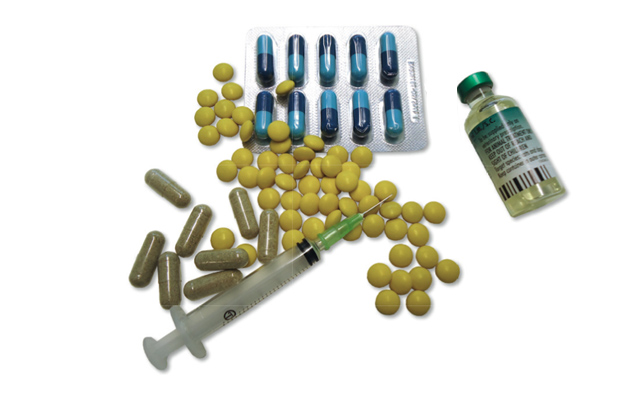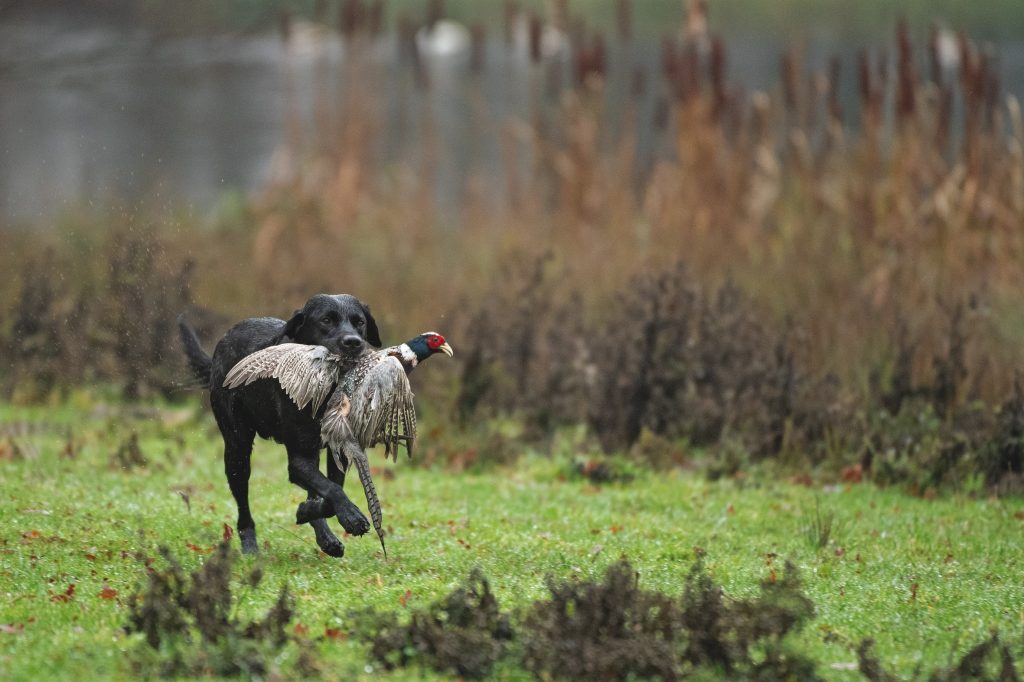The countdown is on for The British Shooting Show – book tickets online today and save on gate price!
Why doping to win gundog trials is never worth the risk

Doping has been proven in many animal sports. Greyhounds, horses and coursing dogs have all been (successfully) given performance-enhancing drugs at one time or another. Some of the drugs used are licensed products such as anabolic steroids, hormones, methylxanthines and amphetamines given in an illegal way. Others are illegal drugs, like cocaine. What they all have in common is that they make the individual go faster or get stronger, hence their use predominates in racing sports.
Field trial dogs, on the other hand, need to be able to work ‘all the way through the gears’. They must be able to sit at your heel, in neutral, with the hand brake on, ticking over quietly. They need to set off in first, changing up the gears to a steady, low rev speed as they hunt, then return at pace, slowing as they approach, before pulling up steadily to a stop before delivering the bird.
The illegal use of ‘go faster’ drugs just does not help you here. Indeed, in my opinion, they would adversely affect most, if not all dogs. Running around like a headless chicken is not, after all, what is required. Similarly, there are very few working dogs which are limited by stature or stamina and who would therefore benefit from ‘growth promoters’.
There are chemical agents, much favoured by the military, that can significantly enhance cognitive function and physical performance over a couple of days, but one thing they all have in common is that this improvement is followed by a significant ‘flat’ or depressed period, where individuals struggle. I doubt our dog owners would accept the risk involved.
Darts and snooker players have been known to cheat by using beta-blockers. These drugs lower heart rate, reduce blood pressure and limit anxiety. I know of people who take them before important presentations, exams or difficult events, such as funerals. Certainly they can alter behaviour in nervous or ‘hyper’ dogs and we use them, for example, in some noise-phobic dogs around Guy Fawkes Night. It is conceivable that beta-blockers, after some trial and error with the dose, might allow some dogs to compete which otherwise would be too ‘over the top’. Their use, however, could also result in sudden collapse or a pretty obvious lack of stamina. I am sure this would be obvious to other competitors and judges, though currently there are no veterinary laboratories that can test for beta-blockers.
And then there are some products that might legitimately help some trialists. Zylkene, for example, a derivative of the milk protein, casein, can reduce anxiety in nervous individuals, but it is a ‘nutraceutical’ and therefore would not and could not be defined as a doping agent. Similarly, Calmex, Rescue Remedy and a variety of other products all claim to have a calming effect without actually containing proven pharmacological agents.
Is this cheating? Is the use of these substances really any different from altering protein levels in food or changing diets in an attempt to subtly change a dog’s temperament? I leave others to decide but I think probably not.
There are other complicated substances, such as human erythropoietin and, again, anabolic steroids, that might enhance stamina over the short term but would be detrimental to long-term health. Hardly a benefit to a field trial champion.
The bottom line for me is that I cannot think of a single performance enhancing drug that is likely to be reliably and repetitively useful in field trial dogs, without producing behaviour that would be very suspicious or which would result in longer term effects such as reduced fertility.
Accusations may abound but the science says otherwise, though I fear I may just have poked a hornet’s nest. I’m off to get some beta-blockers!
Related Articles
Get the latest news delivered direct to your door
Subscribe to Shooting Times & Country
Discover the ultimate companion for field sports enthusiasts with Shooting Times & Country Magazine, the UK’s leading weekly publication that has been at the forefront of shooting culture since 1882. Subscribers gain access to expert tips, comprehensive gear reviews, seasonal advice and a vibrant community of like-minded shooters.
Save on shop price when you subscribe with weekly issues featuring in-depth articles on gundog training, exclusive member offers and access to the digital back issue library. A Shooting Times & Country subscription is more than a magazine, don’t just read about the countryside; immerse yourself in its most authoritative and engaging publication.







